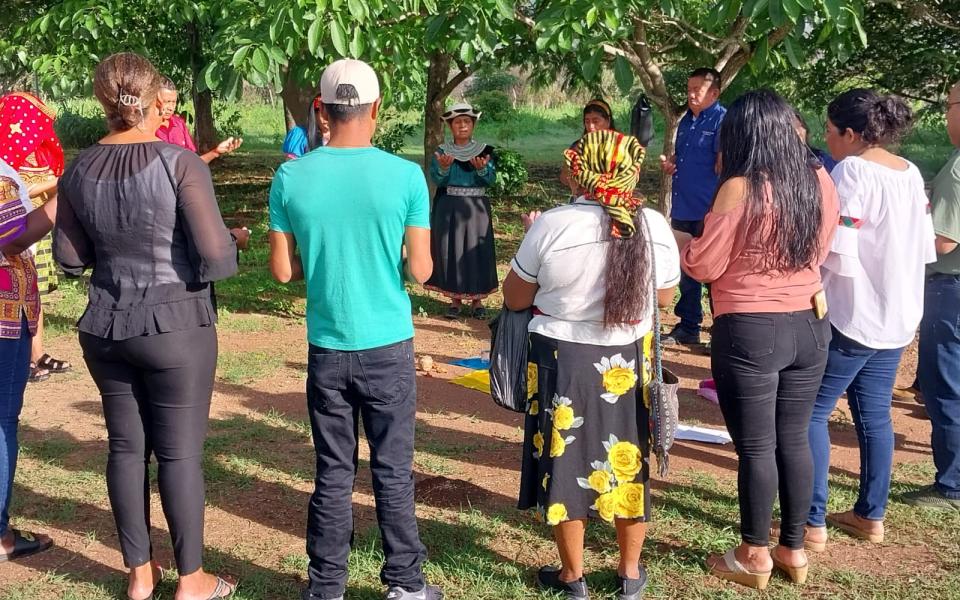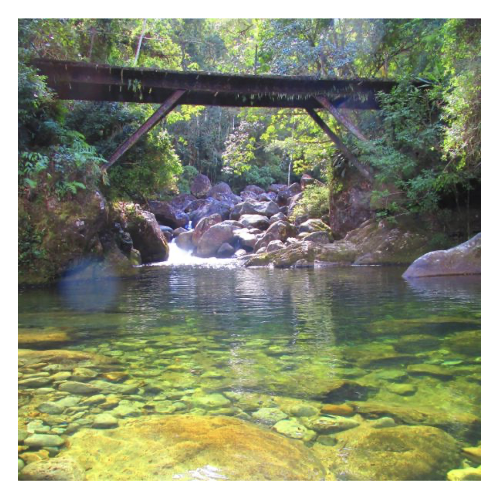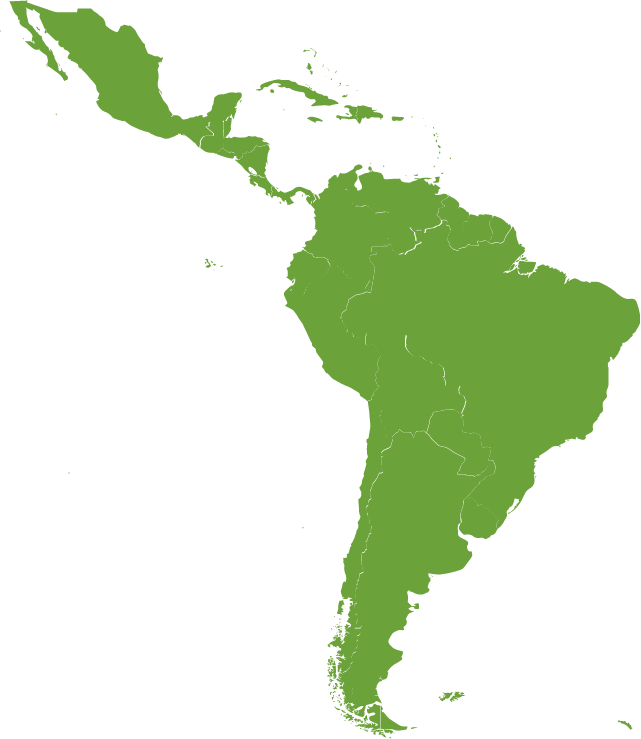
URI honors indigenous wisdom and leadership in helping people learn how to prevent violence and create peace. Two stories, then (1999) and now (2024), give a snapshot of this ongoing relationship of mutual respect and reciprocity. Seeded at the very beginning and growing into the present, URI is committed to learn from and share knowledge with indigenous communities.
THEN

In 1999, 125 people from 35 different spiritual and indigenous traditions gathered for a ceremony of healing in Itatiaia, a Brazilian rain forest. The Rev. Charles Gibbs, URI’s Executive Director at that time, wrote:
Ancient divisions were so strong that they had always danced separately. Until that night. That night presented the moment to set those divisions aside—the moment for healing and peace. That night, for the first time in ancient memory, after each had danced their own dance, all four nations danced and chanted as one people.
The night before, the weight of their task—holding the honor of leading the larger community in healing and peace—nearly defeated them. …To lead a ceremony for healing for the larger group demanded that they heal ancient enmities and make peace among themselves. In effect, they needed to begin on the inside and work out.
When they finished their unity dance, they said it was time to enlarge the circle and they invited all of us to embrace healing and peace. Then there was only one human circle around the fire, enveloped by the rainforest. One humanity.
Indigenous people in their native dress, a Zen Buddhist monk in her black robes, a Tibetan Buddhist monk in his deep red robes, two Dominican monks in their black robes, a Hindu swami in his saffron robes, and a Muslim sheikh who, like the majority of people there, was wearing the clothes that pass for normal in communities all over Brazil.
In that ecstatic moment of dancing together as one community, we were extraordinarily diverse and yet united with one another and with the deep mystery that enlivened the earth, rainforest and sky.
NOW…
2024 URI Indigenous Gathering La Paz, Honduras
In 2024, in a beautiful natural setting in La Paz, Honduras, 30 indigenous from Central America and the Caribbean as well as from different communities in Honduras gathered to reflect together on preserving their cultures and preventing violence.
Rosalia Gutierrez, Kolla from Argentina and a highly regarded URI leader, led two-day intensive conversations which revealed people’s common experiences in confronting violence.
The diverse group shared stories of unique cosmovisions and the community strength they gained through performing traditional ceremonies.
Discussions focused on interreligious dialogue, violence prevention within Indigenous communities, intergenerational understanding, territorial rights and environmental protection, gender equality, and youth engagement.
Critical challenges such as land exploitation, governmental neglect, cultural erosion, and violence were raised. From inside Honduras, representatives came from the Chorotega, Lencas, Miskitos, Garifuna, Maya Chroti, Pech, Tawaka and Tolupan. From outside Honduras, participants came from the Aymara, Cacaopera, Kolla, Kuna, Maya, and Purepecha.
As an outcome of these conversations, indigenous representatives presented a proposal to the non-indigenous participants and staff from the URI Global Support Office.
The proposal outlined overarching goals: expanded violence prevention training for women, youth, and children; promotion of interreligious dialogue to combat intolerance; support for artisanal activities as a pathway to economic stability and cultural preservation; promotion of Indigenous art for empowerment; and organizing a second, more inclusive gathering in 2025 to evaluate progress and expand collaboration.
Prior to the gathering Larissa Abaunza, URI Global Support staff collaborated with indigenous URI leaders to make crucial adaptations of the violence prevention training materials to include knowledge and language that fit indigenous experience and ancestral ways of preventing violence.
Integrating indigenous practices and indigenous ancestral worldview with the Cure Violence methodology, allowed participants to recognize how local people, acting together, could be “interrupters” and help break cycles of violence. Many participants said they gained confidence in their ability to anticipate violence and prevent violence before it happened in their communities.
Rosalia Gutierrez reflected the significance of the gathering:
The meeting of Indigenous peoples in Honduras showed us the path we must take to preserve ancestral values and strengthen the Worldview of Indigenous Peoples to prevent violence that is rooted in religious issues. Today URI is helping to recover and consolidate the Indigenous ancestral worldview as a set of values and community practices that offer an opportunity for the world to heal and recover the values of Mother Earth.
